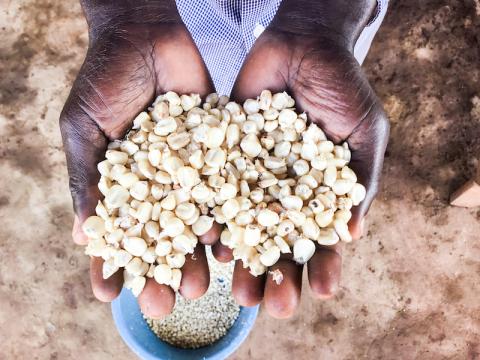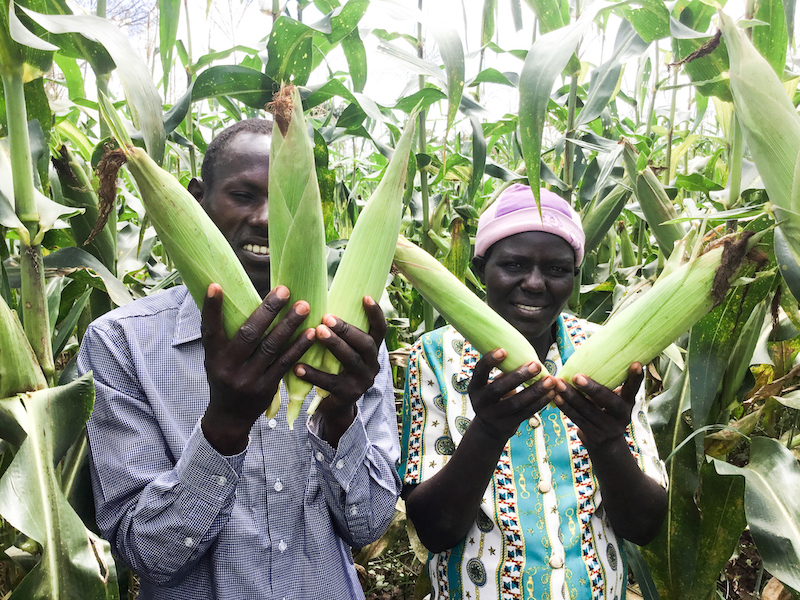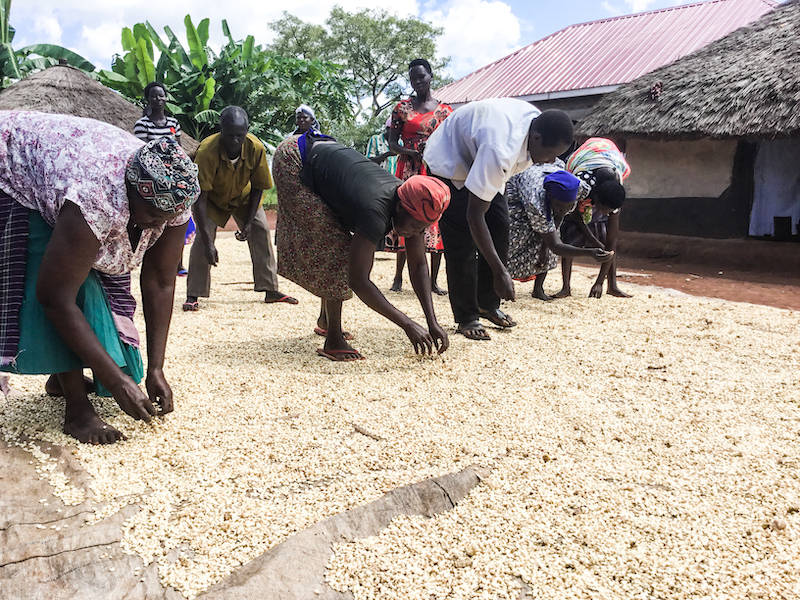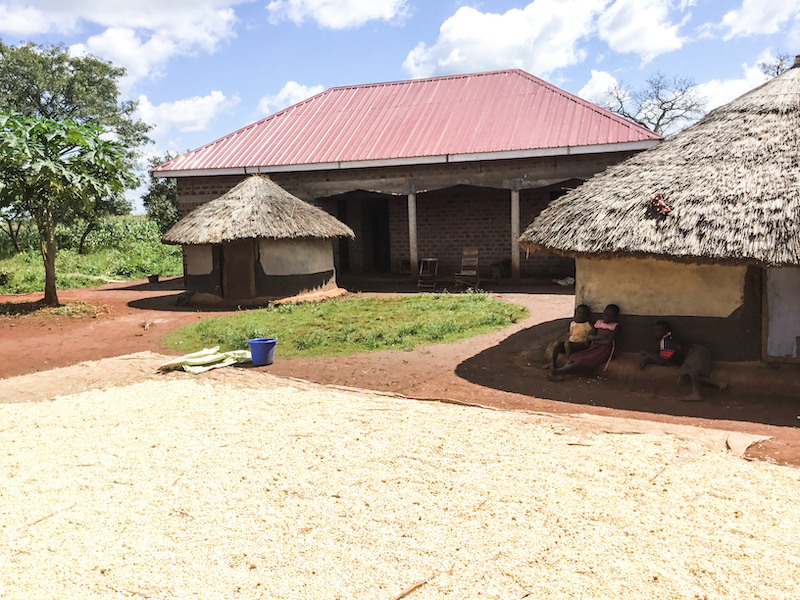Working together helps farmers in Oyam District change their fortune

By Emmanuel A. Okello, Communications Officer
For years, northern Uganda has been plagued with poverty. Even with vast fertile land, farmers engage in small holder farming practices with low productivity as result of use of poor seed varieties and low utilisation of modern farming technologies. However, the script is slowly being rewritten.
Bonny Ayeny and Evelyn Aketa, a husband and wife, are part of Rwot Omiyo Village Savings Group in Adyegi parish, Aber sub-county in Oyam District. Through World Vision, the group has received skills in financial literacy, including saving for transformation. They were also taught knowledge on farming as a business.

God gives
For Bonny and Evelyn, the knowledge gained has started them on a journey to success. Incidentally, the name of the group speaks for itself. Rwot Omiyo, loosely translated, means ‘God has given’.
Having started saving in 2012, they received UGX 1,000,000 (approximately US$267) and bought a larger piece of land to grow grain.
“World Vision taught us to grow maize, soybeans and sunflower and how to store grain before getting someone to buy,” revealed Evelyn.
According to Leo Toorach, the World Vision Technical Programme Officer for Resilience & Livelihoods in the Northern Region, through the local value chain development model, communities are mobilised to form cooperatives at the parish level. These are also known as Rural Producer Cooperatives, which carry out market analysis to understand what the market wants on behalf of the farmers.
In the last season, Bonny and Evelyn planted maize. Unlike the previous season where they sold their maize through middlemen and got lower prices, now they have the backing of the cooperative.
“Maize has a good price from selling as a group. We can wait for the prices to become better before selling the maize through the cooperative and receive more money,” said Bonny.
Bonny and Evelyn, like the rest of the farmers in the area, sell their produce to ABEKAM Area Cooperative enterprise. ABEKAM is an acronym coined from the two sub-counties of Aber and Kamdini both in Oyam District.
Through the area cooperative, stronger and more positive linkages have been created with institutions and government agencies.
ABEKAM recently signed a contract with Arise and Shine Maize Millers Ltd, a private registered company dealing in agricultural produce. The company has been buying maize from farmers at between UGX 950 and 1,000 per kilo of maize grain compared to middlemen who bought at between UGX 200 and 500.
The group also got an opportunity to sell maize to World Food Programme.
In 2018, the cooperative produced 2,919 tonnes of maize. The maize was sold for UGX 46,209,000 (approximately US$12,300).
“We are happy to have joined the cooperative because we are getting more money and our children are able to go to school,” said an excited Bonny.
According to Charles Odyek, the chairperson of Lukole Grain Farmers Area Cooperative Enterprise, based in Agago district and supported by World Vision before cooperatives came in, there were a lot of problems, especially from middlemen who would dictate unfair prices.
“Farmers were not getting anything until we came together. We were able to maximise profits, selling at UGX300 more for a kilo,” disclosed Charles.

More benefits
World Vision also trained farmers on agronomic practices. These included growing crops in rows that ensured higher yields in comparison to broadcasting. Just like their counterparts in ABEKAM, the Lukole-based cooperative sold 250 metric tonnes of maize to South Sudan in 2018.
“When they saw the maize they just trembled. It was UGX 300 at local price but we dictated! We sold it to them at UGX 750 and they just gave us,” divulged Charles.
He advised those who had not joined cooperatives to do so. “Selling together gives you power to bargain than you selling two or three sacks on your own where the buyer will dictate prices for you."
So far, within Northern Uganda there are 52 rural producer cooperatives and 6 marketing cooperatives.
As Bonny and Evelyn continue to save with Rwot Omiyo, their standard of living continues to improve. They have not only constructed a new house from their increased household incomes, but their children continue to enjoy a quality life.
